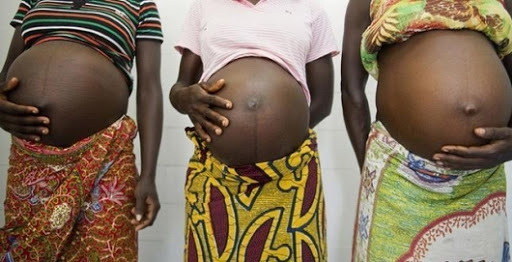Provisional data from the Upper East Regional Directorate of the Ghana Education Service (GES), point to a worrying trend that appears to have negated the many years of advocacy against teenage pregnancy and early marriage.
According to the GES, as at September 2020, 220 pregnancies were recorded in the region. 30 teenage nursing mothers were identified. 105 marriages involving school girls were recorded at the Junior High School level. 48 Senior High School girls were pregnant while 36 of them were nursing mothers.
The provisional figures already show a sharp increase from the 2019 data. In 2019, 154 were absent at the time the Basic Education Certificate Examination was conducted with 92 pregnancies recorded. 80 were absent without a reason and 36 were nursing mothers at the time.
The troubling figures in the region, according to the GES and other stakeholders, could be blamed on the corona virus induced holidays.
It would be recalled that President Nana Addo Dankwa Akufo-Addo in March 2020, announced enhanced measures, aimed at controlling the spread of the corona virus disease, including a ban on public gatherings and school closures. He later allowed final year JHS, SHS and University students to return to school to write their final year exams.
In subsequent announcements easing restrictions, second-year students in junior and senior high schools across Ghana resumed school on Oct. 5, 2020 to complete the academic year while all nursery, kindergarten, primary, and first-year junior high school and Senior high school students will be at home until January 2021, the president announced.
Speaking at a stakeholder engagement in Bolgatanga, the Regional Girl Child Education Coordinator, Rose Akanson, said boys have also resorted to the use of commercial tricycles with more girls taking up apprenticeships.
“This is what I want us to see: it’s not only about the girls; most of the boys were also absent. And when we inquired about their absenteeism, the marriages and all that, the issue that came out was that most of the boys were ridding the ‘yellow yellow’. If you go down to the district, the figures are troubling. We met with the Director General of GES and they wanted us to strategize and see how we can get the children to go back to school. It is not only for the Upper East Region; it cuts across the entire country. When we went and the people were reporting, the statistics looked so gloomy and we were wondering if about 100 or 200 girls in each region, multiple that and see the effect it would have in subsequent years,” she noted.
She further opined that the late enrollment of children is a contributory factor.
“Most of the time, it is not because the girls are teenagers but they have gone to school late. You have 19 year olds in form one. 17 year olds in form one. At that time, they’re already matured. So if the children go to school early, by 15, 16, they’re already transitioning into senior high.
If you look at the pregnancy numbers in the senior high, they’re few and if you want to even go down, it is the day schools that have accounted for this not the boarding houses. The boarding houses, they’re only ‘one, two, one, two.’ It also looks like these days, parents, don’t care. If you listen to commentary, the children should go back to school; they’re worrying us. You have given birth to your child and you think that the child should be with the teacher. You are the first teacher of the child,” she stressed.
The event was under the theme “Impact of COVID-19 on teenage pregnancy:the role of religious leaders and other stakeholders in preventing teenage pregnancy”.




